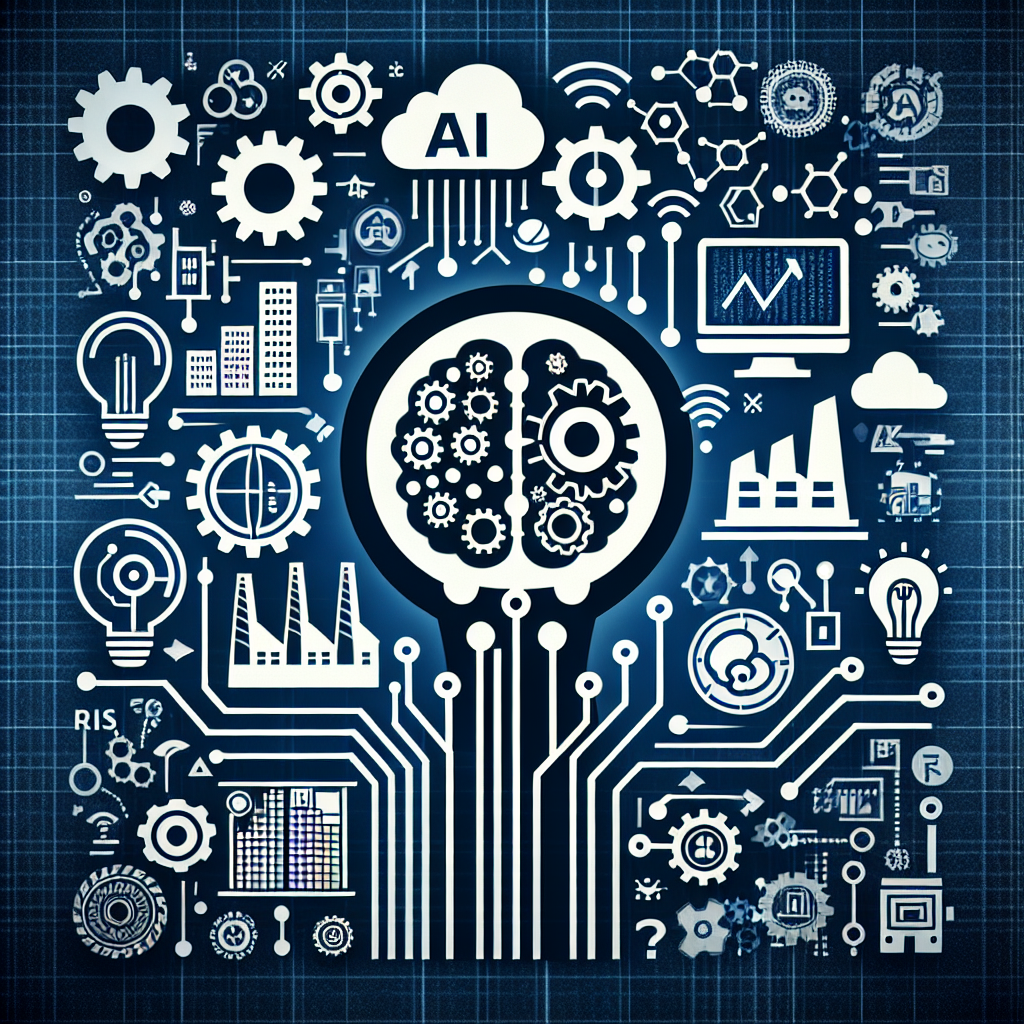Artificial Intelligence (AI) is revolutionizing the way industries operate, with its integration into Industry 4.0 leading to increased efficiency, productivity, and competitiveness. Industry 4.0, also known as the Fourth Industrial Revolution, is characterized by the fusion of digital technologies with traditional manufacturing processes, resulting in smart factories that are interconnected, automated, and data-driven. AI plays a crucial role in this transformation, enabling machines to learn, adapt, and make decisions without human intervention. In this article, we will explore the role of AI in Industry 4.0 and its impact on various industries.
AI in Industry 4.0: Driving Innovation and Transformation
AI technologies such as machine learning, deep learning, and natural language processing are at the core of Industry 4.0, enabling machines to analyze large amounts of data, identify patterns, and make predictions. These capabilities are transforming traditional manufacturing processes, allowing for predictive maintenance, real-time monitoring, and optimized production schedules. AI-powered robots and autonomous systems are also being used in smart factories to perform complex tasks with precision and efficiency.
One of the key benefits of AI in Industry 4.0 is the ability to improve operational efficiency and productivity. By analyzing data from sensors and machines in real-time, AI systems can identify potential bottlenecks, optimize production schedules, and reduce downtime. This results in cost savings, increased output, and improved quality control. AI-powered predictive maintenance systems can also help companies avoid unexpected equipment failures, leading to further cost reductions and increased reliability.
Another important application of AI in Industry 4.0 is in the area of supply chain management. By analyzing historical data, market trends, and customer preferences, AI systems can optimize inventory levels, forecast demand, and improve logistics operations. This not only reduces costs but also enhances customer satisfaction by ensuring timely delivery of products. AI-powered chatbots and virtual assistants are also being used to streamline customer service and support functions, providing personalized and efficient responses to customer inquiries.
AI is also playing a crucial role in enabling the development of new business models and revenue streams in Industry 4.0. By leveraging AI technologies, companies can create innovative products and services that cater to changing market demands. For example, AI-powered digital twins are being used to simulate and optimize production processes, allowing for the design of new products with improved performance and functionality. AI-driven analytics platforms are also helping companies extract valuable insights from data, enabling them to make informed decisions and drive business growth.
AI in Industry 4.0: Challenges and Opportunities
While the potential of AI in Industry 4.0 is vast, there are also challenges that need to be addressed. One of the key challenges is the lack of skilled professionals with expertise in AI technologies. Companies need to invest in training and development programs to build a workforce that can effectively leverage AI capabilities in their operations. Additionally, there are concerns around data privacy and security, as AI systems rely on large amounts of data to make decisions. Companies need to implement robust cybersecurity measures to protect sensitive information and ensure compliance with regulations.
Despite these challenges, the opportunities presented by AI in Industry 4.0 are immense. By harnessing the power of AI, companies can unlock new levels of efficiency, productivity, and innovation. AI technologies are enabling the development of smart factories that are agile, responsive, and adaptable to changing market conditions. Companies that embrace AI in their operations are well-positioned to lead in the Fourth Industrial Revolution and gain a competitive edge in their respective industries.
FAQs
Q: What is the role of AI in Industry 4.0?
A: AI plays a crucial role in Industry 4.0 by enabling machines to analyze data, identify patterns, and make decisions without human intervention. AI technologies such as machine learning, deep learning, and natural language processing are used to optimize production processes, improve supply chain management, and drive innovation in smart factories.
Q: How can AI improve operational efficiency in Industry 4.0?
A: AI can improve operational efficiency in Industry 4.0 by analyzing data from sensors and machines in real-time, identifying potential bottlenecks, optimizing production schedules, and reducing downtime. AI-powered predictive maintenance systems can also help companies avoid unexpected equipment failures, leading to cost savings and increased reliability.
Q: What are the challenges of implementing AI in Industry 4.0?
A: Some of the challenges of implementing AI in Industry 4.0 include the lack of skilled professionals with expertise in AI technologies, concerns around data privacy and security, and the need for companies to invest in training and development programs. Companies also need to ensure compliance with regulations and implement robust cybersecurity measures to protect sensitive information.
In conclusion, AI is playing a transformative role in Industry 4.0, enabling companies to optimize production processes, improve operational efficiency, and drive innovation. By leveraging AI technologies, companies can create smart factories that are agile, responsive, and competitive in the digital age. While there are challenges to overcome, the opportunities presented by AI in Industry 4.0 are vast, and companies that embrace AI are well-positioned to lead in the Fourth Industrial Revolution.

